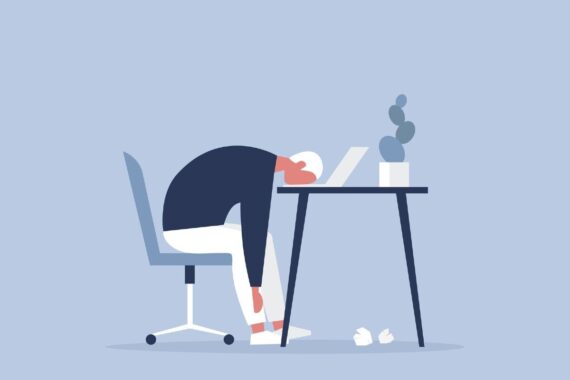My alternative ten-point plan

Columnist Dr Burnt Out lays out some changes to general practice (with no help from KPMG)
I read with interest the recent Times Health Commission report on the future of the health service, which took over a year, seemingly involved trips or meetings to different countries and continents, endless gatherings and discussions of ‘the great and the good’ on the panel, as well as many delicious lunches and dinners.
I recently also note with utter unmitigated horror what is currently going on as we speak at the Northwest London ICB with the aid of KPMG
I don’t know how many jobbing clinicians there were on the THC panel, and how many vested and conflicts of interest there were, but for what it’s worth, below is my five minutes’ worth and an alternative 10 point plan:
1. Get rid of the ARRS scheme: It has now been shown definitively that it is workload generating and cause widespread confusion.
2. Do not encourage ‘self-referral to specialists’ like dermatology: GPs can diagnose and treat the vast majority of dermatology conditions that present to primary care. Self-referral will just increase the ever-expanding backlog.
3. Avoid remote appointments and triage: It is more time consuming and less safe (as stated by coroners). With doctor triage, GPs now spend half their time acting as a receptionists trying to find appointments for patients who inevitably have to come in and half the time phoning back patients you have left answerphone messages to or the phone has cut off. Remote working and triage has confused a generation of patients about what they need to come into the doctor for, and many members of the public seem to now think that they can deal with their severe abdominal pains between work meetings.
4. Avoid overdigitisation: It often does not work: patients receive wrong and confusing text messages and alerts, and again it is frequently workload-generating.
5. See the vast majority of patients face to face: It is safer, more efficient, patients generally like it better and you can stop staring at a screen for a few minutes. You can quickly assess a patient within seconds if you actually meet them in person: I recently did a home visit for someone who, when opening the door, I could see within seconds had quite clearly got cellulitis of the lower leg. Hours of triage and chatbot questions would not really have helped.
6. Avoid GP ‘super-practices’: Patients don’t like them and there is less continuity of care . There is also potential for huge legal and financial liability problems in the current model. Patients prefer smaller GP practices (if that counts for anything at consultancy firms like KPMG).
7. Explain to people that health comes first and trumps ‘convenience’: Also that they may need to take a bit of time off work to go and see the doctor (didn’t people used to like taking half a day of work ‘to go to a doctor appointment’? I certainly did!). Also, serious medical problems are not suitable to be discussing remotely while someone is between work meetings or walking around Sainsbury’s.
8. Avoid asking patients to take photos: It’s not good enough, and you need a history and context. ‘How’s your elbow?’ I said to a patient recently who had sent a photo in. He smiled at me, lifted up his t-shirt and a big umbilical hernia was looking at me. ‘Ahhh….’ I said. Photos aren’t good enough and can also be unsafe outside of clinical context.
9. Introduce Swedish ‘Fika’ like coffee breaks for staff in all surgeries: It makes people happier and stops you looking at a screen for 12 hours at a time.
10. Ban Lord Darzi from ever being on a panel discussing general practice ever again.
So… Times Health Commission, there are some good points in the report, like writing off debts for doctors, but a lot of it is just a re-hash of the usual stuff – ‘increasing technology’ and that type of AI-promoting, health-tech enabling and tech-income generating bullshit.
GPs seeing patients in person, getting to know them and their health needs, being allowed clinical autonomy to refer and prescribe as necessary, to do what we as GPs were trained for many years and have a vocation for… how’s that for a start?
Dr Burnt Out is a GP locum in London
Pulse October survey
Take our July 2025 survey to potentially win £1.000 worth of tokens

Related Articles
READERS' COMMENTS [6]
Please note, only GPs are permitted to add comments to articles











Excellent. Just excellent.
Excellent.
Agree fully with 2, 4-8, and 10, all excellent suggestions.
But…….
1- scrap ARRS and replace with…….what???? Doctors didn’t want the partnerships/salaried posts we advertised, so without ARRS we die on our ARRS
3- triage has similarly saved a sinking ship. Throwing open the doors like in ye olde dayes is unrealistic, yet we cannot simply declare ourselves “closed”. Triage bridges that reality gap.
9- we don’t all stop at the same time, so co-ordinated coffee breaks are unrealistic, but it’s a nice thought.
Absolutely excellent.. spot on
ARRS threatens to be the next public scandal after post office/ Horizon, Ofsted / Ruth Parry etc..
Stop it now!
Small practices and continuity-YES
@Peter Scott
Appraisal/Revalidation by GMC has been a public scandal for nigh on 20 years (no evidence base, demoralising, early retirement, emigration etc etc). What has the medical profession done about it?
Disagree with a lot of these points. Let’s go back to the use of leeches. The only way forward is embracing new ways of working and the digital revolution.